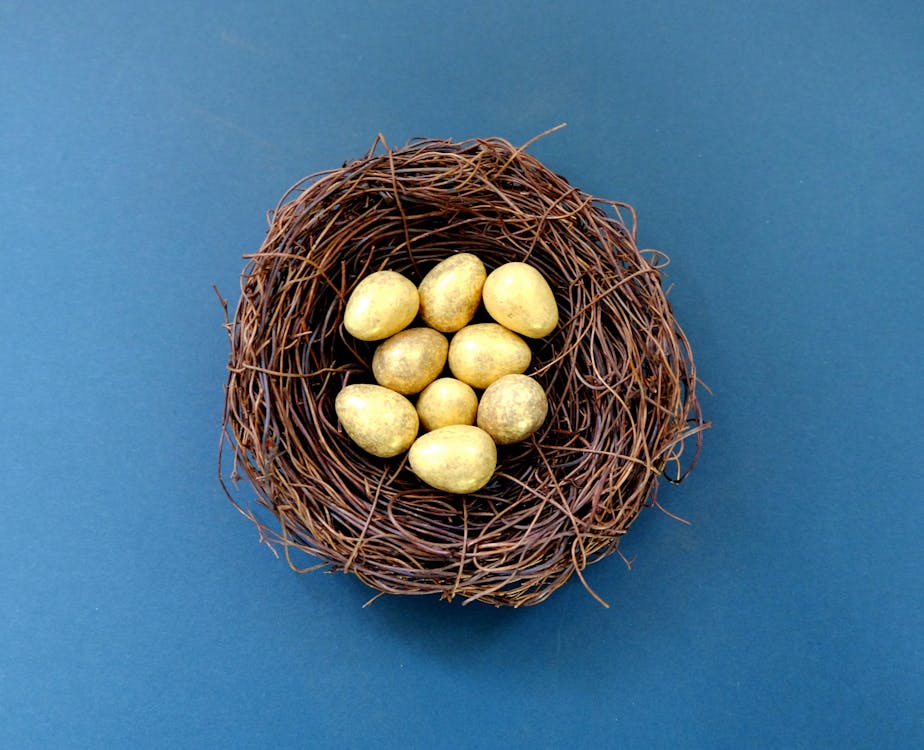What Freezing your Eggs is Really Like – Everything you Need to Know
7 minuteRead

In recent years, egg freezing is a buzzword that has taken the field of fertility medicine by a storm. In fact, after IVF, it is the biggest technological advancement. A lot of us may have come across the term but don’t know what it really means. Well, we’re not talking about freezing the eggs in your kitchen, it’s a lot more than that. It’s about beating your biological clock so that you can embrace parenthood later in life.
Women & Fertility
Gone are the days when a woman would conceive within one or two years of their marriage. Also, the number of women getting pregnant in their 20s has decreased considerably. Today, a lot of women are choosing to have babies later in life for a myriad of reasons including delayed marriage, career commitments, fast-paced lifestyle or medical necessities. While society’s outlook and patterns towards childbirth may have changed, the realities of the biological clock remain the same. It’s easier to get pregnant in your 20s as compared to mid-30s or early 40s.
As women age, their fertility rate decreases and there is also a likelihood of increased chromosomal abnormalities such as birth defects and chances of miscarriage. These days, fertility concerns among married and single women are real. Well, if you’re one of them and are looking for ways to stop your biological clock, you’ll be glad to know that there is a way.
What is Egg Freezing?
Egg freezing or oocyte cryopreservation is a new-age fertility preservation method that enhances a woman’s chances of getting pregnant later in life, and allows them to control their fertility. Freezing eggs at 40 has almost become the order of the day. Though egg freezing may come across as a new reproductive technology, the reality is that it has been around for quite some time now. Did you know? The first baby conceived from a frozen egg was in 1986. It is only now that the procedure is swiftly gaining momentum in India.
If you’re considering freezing your eggs, it’s normal to have innumerable questions plaguing your mind. Well, through this blog, we hope to give you all the information that you need to know about egg preservation.
The Best Time to Freeze your Eggs
Women are most fertile between the age of 25 to 35. The quantity and quality of your eggs during this time is at its peak. Freezing your eggs in this bracket gives you a better chance of getting pregnant later on. However, if you decide to freeze your eggs in your late 30s, you’re still in the race to getting pregnant. It’s all about priorities and choices. If you’ve made up your mind on not having children for the next five years, we would recommend freezing your eggs. The younger you are, the better your eggs will be.
At the age of 30, 30% of your eggs will be abnormal whereas at 40, 60% of them will be. There are women who’ve conceived naturally after 35, it’s only that having a baby before that is always healthier in case you don’t decide to go in for egg freezing.
Top Reasons Why Women Freeze their Eggs
While it is obvious that women choose oocyte cryopreservation to protect their fertility, the reason is different for everyone. Here are a few reasons women decide to freeze their eggs:
- They feel like it isn’t the “right time” to start a family
- They haven’t found the right partner/delayed marriage
- Partner isn’t ready for parenthood
- Career and professional commitments
- If a woman is undergoing cancer treatment including chemotherapy, radiation or any kind of surgery
- To gain fertility freedom
- Some are unsure if they want kids at a particular point in their lives
- To prevent the regret of not freezing when they had the chance
Now that we know why women freeze their eggs and the right time for them to do so, let’s understand how the process works and what the actual procedure entails.
How Egg Freezing Works?
Egg freezing works in two ways. Women either have the option of freezing their mature eggs that are harvested from their ovaries or freezing their embryos that are fertilised eggs. Whichever route you choose, there is an initial process you must go through which is similar to in-vitro fertilisation (IVF).
The first one is a consultation wherein a woman has to undergo several tests to evaluate the present condition of her eggs. After the screening process, it is important to stimulate the patient’s ovaries.
Contrary to the one monthly egg produced, patients should produce multiple eggs at a time. This is achieved through hormone injections which are injected for 10 to 12 days prior to egg retrieval. In the ovarian stimulation process, synthetic hormones are injected to stimulate the ovaries. During this time, doctors might even suggest birth control pills to temporarily turn off the natural hormones that produce one egg during menstruation. Women are constantly monitored for any adverse reaction.
Once the eggs have matured, the egg retrieval process is initiated. Remember, it is an invasive procedure which is performed under sedation. Your doctor will be using an ultrasound, a needle and a suction device to extract the eggs. The needle is inserted through the vaginal opening into the ovaries. The procedure is termed as moderately painful.
Once the eggs are retrieved, they are not frozen immediately. Instead, they are analysed for any kind of damage. They are cleaned and only the healthy ones are frozen in liquid nitrogen containers. Liquid nitrogen increases the egg survival rate compared to “slow freezing” which is a long cooling process. These containers are further kept in a lab, fertility centre or egg lab. This process is called vitrification.
5 Things to Consider Before Freezing your Eggs
Are you fascinated by the egg freezing process? Well, if you are, here are a few more things you should know and consider before going ahead with the procedure:
- It has side effects: Don’t get intimidated by the term “side-effects”. Both during and after the procedure, women experience certain side-effects. During the injection stage, nausea, weight gain, abdominal discomfort, bloating, irritability and mood swings are normal. The symptoms are similar to PMS. After the infection too, bloating, infection and bleeding is common which is related to Ovarian hyperstimulation syndrome. However, there is no need to get alarmed as these symptoms will settle-in time. There is still no research on long-term effects.
- Freezing eggs and embryos is different: In embryo freezing, the eggs are first fertilised using IVF and once they develop into embryos, they are flash frozen. On the other hand, in egg freezing, the eggs are simply extracted and frozen. For a couple who isn’t ready for children, embryo freezing is preferred whereas for single women, egg freezing is a better option.
- Pregnancy is not guaranteed: Like a natural conception, there are no guarantees of pregnancy when it comes to egg preservation. It’s not a magic potion. You can’t just expect to freeze your eggs at 40 and get pregnant at 45. To determine a successful pregnancy, several factors come into play such as the thawing process, survival rate and number of viable eggs. Therefore, even before you consider freezing your eggs, ask your doctor as many questions as you want.
- It can be expensive: It is a known fact that fertility treatments are expensive. Even before you make a decision, it’s important to be aware of all the costs you might have to incur in the process. Most hospitals in India charge Rs. 1,00,000 to 1,50,000. However, apart from this there are many miscellaneous expenditures including medication charges which can go up to Rs. 80,000 plus the freezing charges which are Rs. 20,000 upwards. There are even recurring annual costs to ensure they are frozen safely. Before going ahead, speak to your clinic as well as the insurance company. However, even the best conditions don’t guarantee a pregnancy.
- It may require more than one cycle: Egg harvesting for freezing does not always happen in one go. If you have a low egg reserve, it may not be sufficient to make enough embryos later on. Doing it again not just increases the cost but also the emotional burden on the patient. Most doctors recommend getting pregnant within four or five years of freezing your eggs. Although there is no cut-off date, this waiting period is good enough. If used before the age of 45, women have a higher chance of achieving a successful pregnancy outcome. Ideally, women should freeze 20 eggs which can be used successfully to get pregnant later.
Egg freezing is no longer considered an experimental procedure. It is a safe and ethical fertility treatment just like IVF. While no egg preservation method guarantees 100% effectiveness, the time at which you get the procedure done matters. Since fertility decreases over time, it is recommended that women freeze their eggs before the age of 35, or latest by 40. For anyone looking to experience motherhood later in life, egg freezing is indeed a magical treatment.
Write, Record and Answer! Consume Unlimited Content! All you need to do is sign in and its absolutely free!
Continue with one click!!By signing up, you agree to our Terms and Conditions and Privacy Policy.










